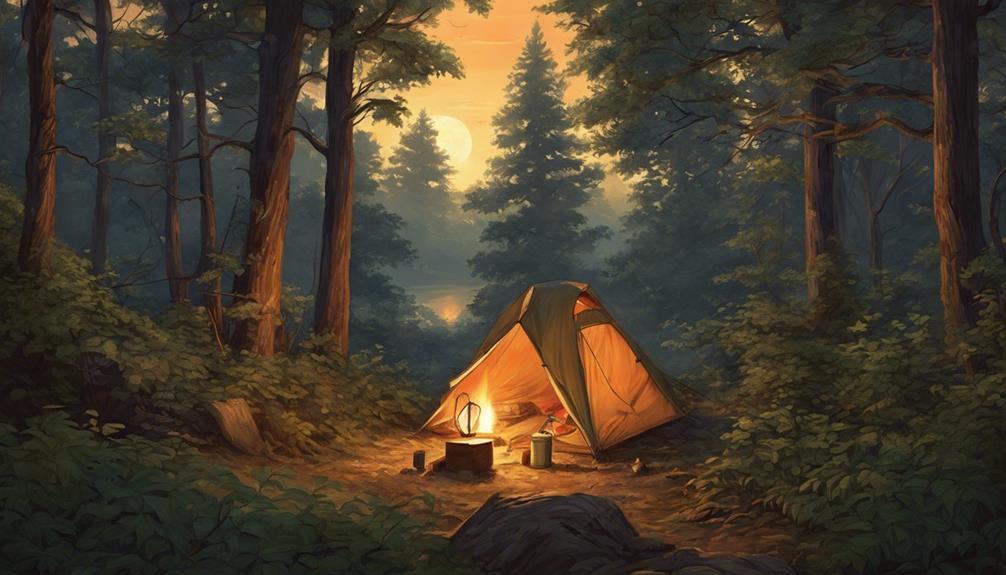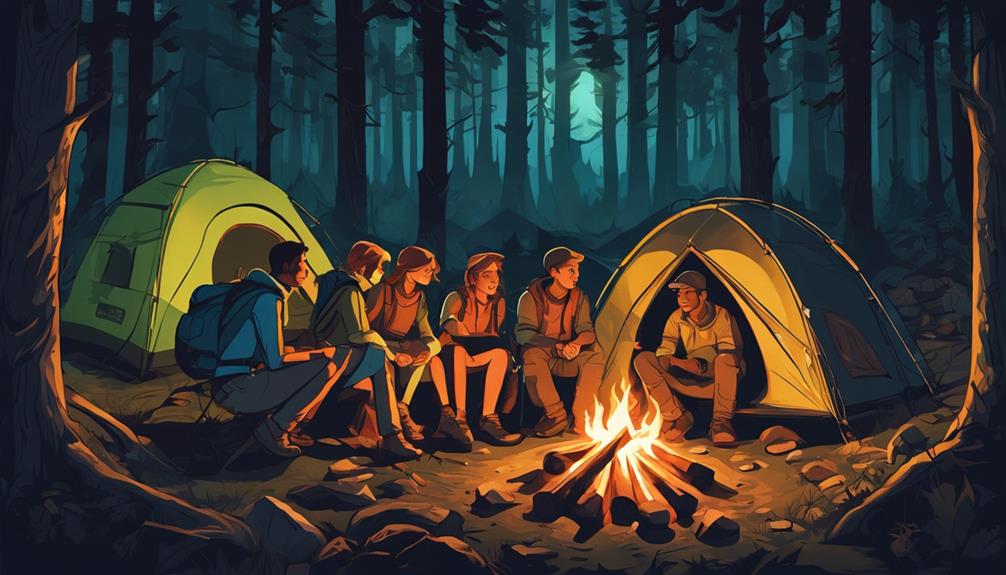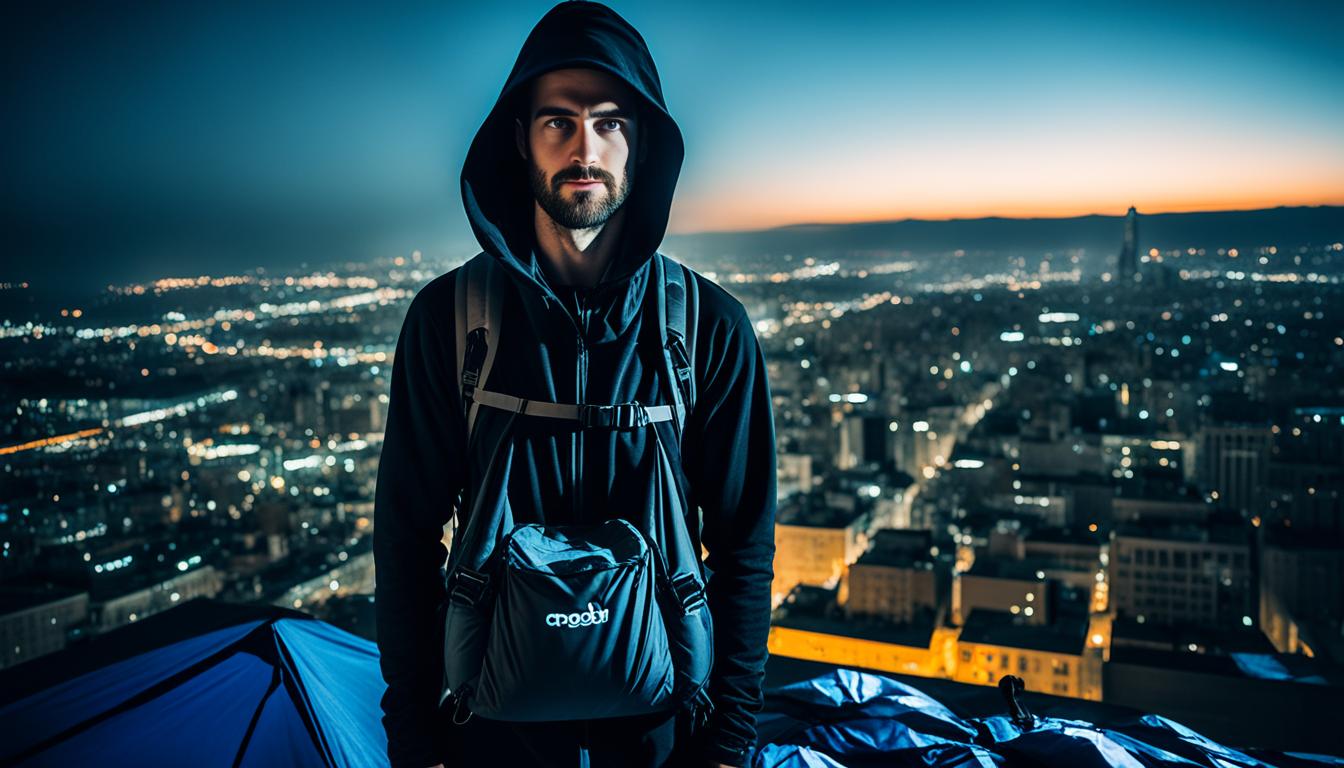As stealth campers, we have all experienced the challenge of finding the ideal spot to spend the night, turning it into a strategic mission. But have you ever thought about the legal consequences of your undercover camping escapades?
While the thrill of blending into the wilderness under the radar can be exhilarating, being aware of the legal tips for discreet outdoor overnight stay is crucial to avoid any unwanted encounters.
So, let's explore how you can navigate the legal landscape and ensure your stealth camping stays on the right side of the law.
Key Takeaways
- Know local laws to avoid legal issues while stealth camping.
- Pack essential gear for comfort and stealth.
- Choose secluded spots with water sources for discreet camping.
- Practice Leave No Trace ethics to preserve natural spaces.
Legal Considerations for Stealth Camping
In assessing the legality of stealth camping, one must carefully examine the local ordinances governing camping activities in the area of interest. When considering an overnight stay in a discreet outdoor location, understanding the regulations surrounding public property use is essential. Many municipalities have specific laws regarding stealth camping, including prohibitions on sleeping in vehicles overnight. It's crucial to familiarize oneself with the laws and rules governing the chosen area to avoid potential legal issues. Some locations explicitly forbid camping on public property or parking overnight, making it imperative for individuals engaging in stealth camping to adhere to these regulations.
Local ordinances play a significant role in shaping the legality of stealth camping. Different municipalities have varying rules governing outdoor overnight stays, making it necessary to research and understand the specific laws in the area of interest. By being aware of the legal framework surrounding camping activities, individuals can ensure they're compliant with regulations and avoid any potential legal consequences.
Essential Gear for Discreet Camping
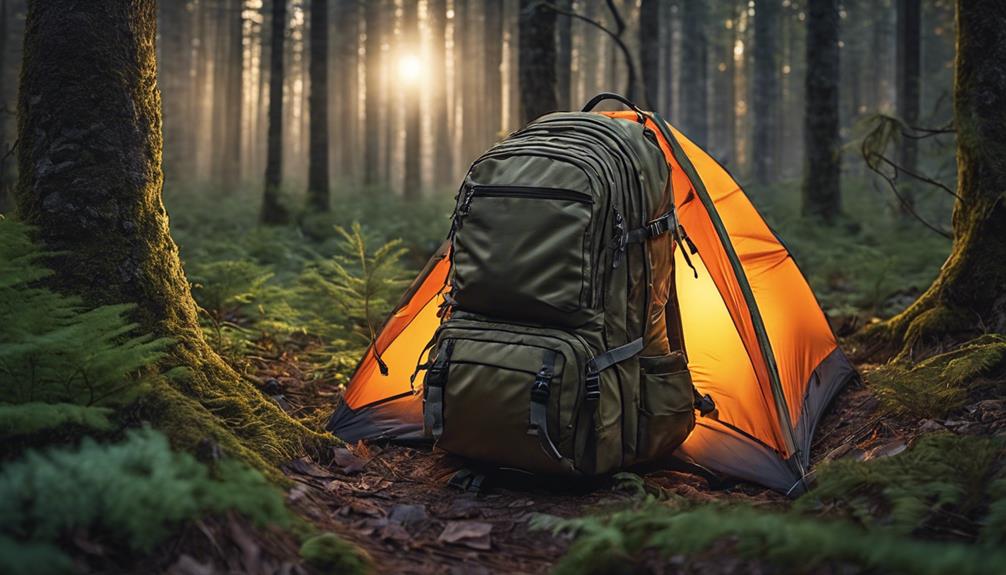
Considering the legal implications of stealth camping, a critical aspect to address is the selection of essential gear for discreet outdoor stays. When engaging in discreet camping, the right camping gear can make a significant difference in your comfort and overall experience. Here are some essential items to consider:
- Lightweight Tent: Opt for a lightweight tent that's easy to set up and portable, allowing you to quickly establish your shelter without drawing unwanted attention.
- Sleeping Bag: Choose a sleeping bag suitable for the expected temperature to ensure a restful night's sleep while keeping your pack weight down.
- Water-Resistant Sleeping Pad: A water-resistant sleeping pad not only adds comfort by insulating you from the cold ground but also provides protection against dampness.
- Inflatable Pillow: An inflatable pillow is a portable and comfortable option that can enhance your sleeping experience without occupying much space in your backpack.
- Dark-Colored Backpack: Selecting a dark-colored backpack or duffel bag can aid in your efforts to blend into your surroundings, maintaining a discreet camping profile.
Choosing the Right Location
When selecting an ideal stealth camping spot, prioritizing privacy, accessibility, safety, proximity to water sources, and seclusion from popular trails is paramount.
Privacy is crucial to avoid detection and ensure a peaceful overnight stay. Look for secluded areas away from popular trails where you can set up camp without drawing attention.
Accessibility is key for discreetly entering and exiting the location. Choose spots that are manageable to reach without causing a disturbance.
Safety shouldn't be overlooked; opt for locations with minimal risks and easy escape routes if needed.
Proximity to water sources is beneficial for hydration and basic camping needs, but make sure it doesn't compromise your stealth setup.
Blending Into Nature
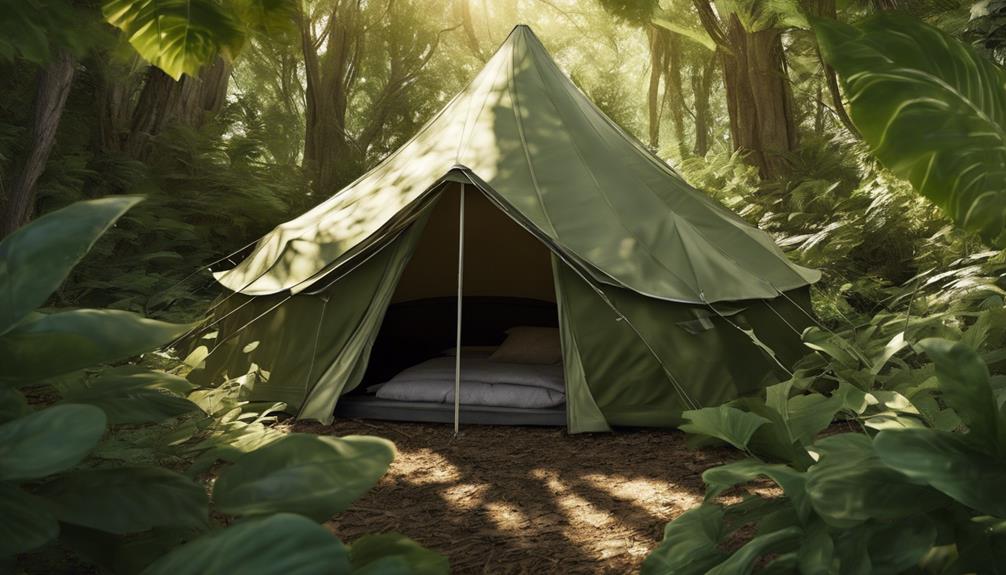
To seamlessly merge with the environment during stealth camping, careful consideration of clothing choices and minimizing noise and light sources at the campsite is imperative. When blending into nature, opting for earth tones and camouflage patterns in your attire helps you remain inconspicuous.
Additionally, reducing noise levels by avoiding unnecessary chatter and using quiet gear prevents drawing attention to your campsite. Minimizing light sources, such as keeping campfires small and using low-intensity lighting, aids in maintaining a discreet outdoor stay.
Choosing a low-profile shelter like a bivvy bag or a compact tent ensures your presence is less noticeable in the wilderness. Being mindful of your scent by refraining from strong-smelling foods and using unscented hygiene products contributes to minimizing your impact on the environment and helps you blend seamlessly into nature.
Leave No Trace Ethics
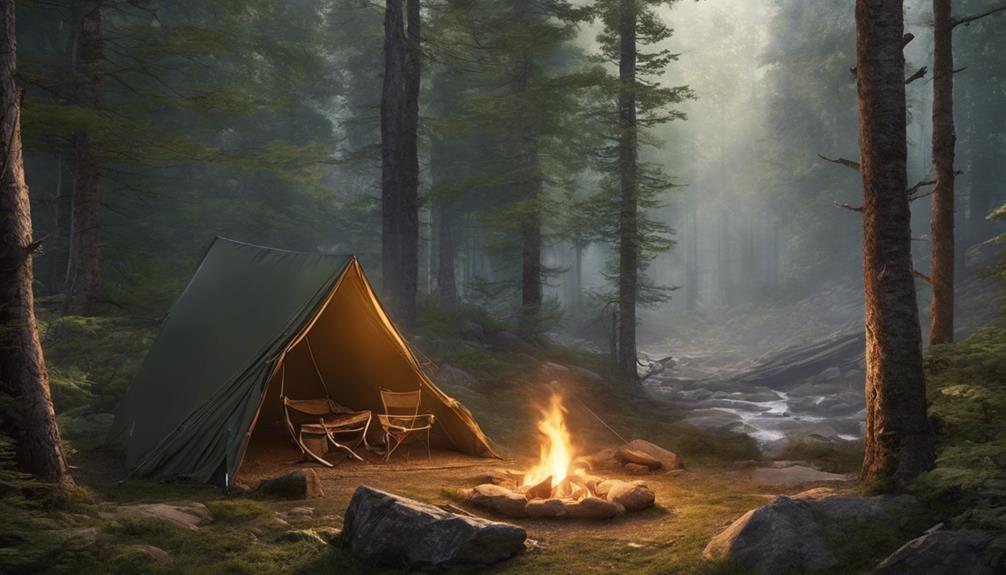
Leave No Trace Ethics dictate the responsible and environmentally conscious behavior that outdoor enthusiasts must adhere to in order to preserve natural spaces for future enjoyment. It's crucial to understand the importance of these principles when engaging in activities like stealth camping, where leaving no trace is particularly vital.
When spending time in overnight areas, we need to be well aware of the impact on the environment that our presence can have. By following Leave No Trace guidelines, such as properly disposing of waste and leaving natural objects untouched, we can minimize our footprint and ensure that these areas retain their natural beauty for generations to come.
Practicing these ethics isn't only a legal necessity but also a moral obligation to respect and protect the environment. Therefore, when engaging in stealth camping or any outdoor activity, it's imperative to prioritize Leave No Trace principles to safeguard the integrity of our natural surroundings.
Frequently Asked Questions
What Are the Rules of Stealth Camping?
When it comes to the rules of stealth camping, understanding the specific ordinances and regulations of the area is crucial. Different locations have varying laws regarding overnight stays in public spaces or vehicles. Some municipalities strictly prohibit such activities, leading to potential fines or penalties.
Researching and complying with local laws is essential to avoid legal issues while stealth camping. It's imperative to be well-informed about the legal considerations to ensure a discreet outdoor overnight stay.
What Is the Difference Between Boondocking and Stealth Camping?
We focus on the distinction between boondocking and stealth camping.
Boondocking entails camping in remote, undeveloped areas, emphasizing a connection with nature. On the other hand, stealth camping involves discreetly camping in urban or semi-urban locations to avoid detection.
Boondocking is rooted in traditional wilderness camping, while stealth camping centers on blending into urban surroundings.
Both require self-sufficiency and environmental awareness but differ in their choice of settings and visibility.
What Is a Place Used for Overnight Stay in an Outdoor Area?
When camping outdoors, the term for a spot utilized for an overnight stay is crucial. It denotes the location where we discreetly set up camp to evade detection. This practice involves selecting remote or unconventional spots for a secluded experience.
Our aim is to remain inconspicuous, blend in with the surroundings, and avoid leaving any trace behind. Adhering to legal and ethical standards, we ensure minimal impact on the environment and community.
How Do You Get Away With Stealth Camping?
We can achieve successful stealth camping by:
- Blending in with our surroundings
- Avoiding activities that give away our presence
- Parking in free overnight locations
Maintaining a clean, inconspicuous vehicle and seeking support from the RV community can also enhance our experience.
Is Stealth Camping Legal and Safe for Overnight Stays?
Stealth camping can be a controversial topic, as it involves camping in undesignated areas to avoid detection. While it may be illegal in some places, there are stealthy tent camping tips to minimize impact and increase safety. Research local regulations and seek out low-impact campsites for a more responsible experience.
Conclusion
In conclusion, stealth camping can be a rewarding outdoor experience when done responsibly and within legal boundaries. By following local ordinances, blending in with surroundings, and leaving no trace, campers can enjoy the beauty of nature while respecting laws and regulations.
For example, seeking permission from landowners before setting up camp in a secluded area can prevent legal issues and foster positive relationships with the community. Remember, discretion and respect are key to a successful stealth camping adventure.

